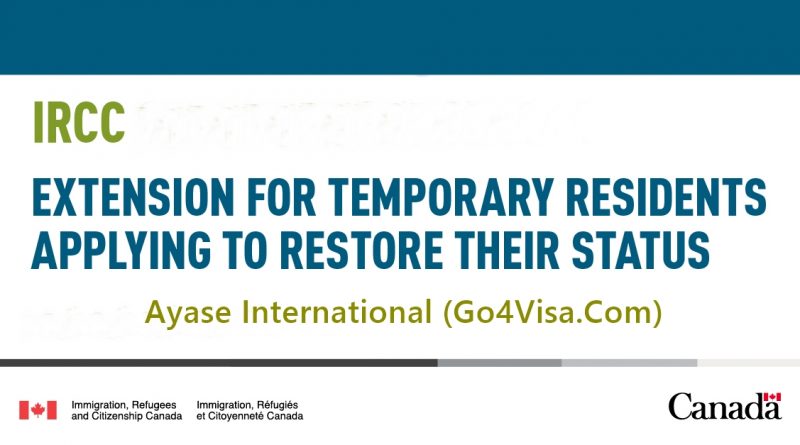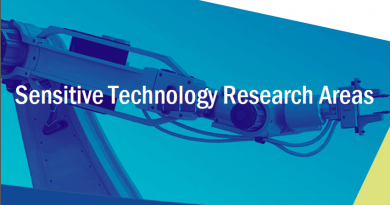Restoration of Temporary Resident Status
For example, a temporary resident with authorization to study who is out of status cannot apply to restore their temporary resident status with authorization to work. They must apply to restore their temporary resident status with authorization to study.
Students
A temporary resident who held a study permit and has lost their status can apply in Canada for restoration of their temporary resident status and study permit. They may also apply and pay for a work permit if they meet the requirements of the work permit program they are applying for. If they are approved for the study permit, the work permit application will then be processed.
Students applying for a post-graduation work permit (PGWP)
Workers
A temporary resident who held a work permit and lost their status can apply in Canada for restoration of their temporary resident status and authorization to work within 90 days of having lost their status. In addition to applying for restoration and a new work permit, they may also apply for a study permit, and pay the fees, if they meet the requirements for study permit issuance. The study permit will only be assessed after the work permit and restoration applications are approved.
Visitors
A visitor who is out of status may apply to restore their status as a temporary resident. Temporary residents who are eligible to apply in Canada for a work or study permit [R199 or R215] may do so when restoring their temporary resident status. The fees for the study or work permit must be paid in addition to the restoration fee, unless they are otherwise exempt.
Temporary resident permit (TRP) holders
A temporary resident permit (TRP) holder who has let their permit expire is not eligible for restoration. They must submit an application for a new TRP.
Note: The person must still satisfy the officer that they are a genuine temporary resident and meet all the requirements of the IRPA in order to qualify for a new TRP.
Restoration fees
Foreign nationals applying for restoration must pay all the corresponding fees. Any foreign national applying to restore as a temporary resident must pay only the restoration fee (that is, $200). However, if the foreign national also requires a work or study permit, they must pay the cost recovery fees for each permit in addition to the fee for restoration (that is, $200 plus each permit fee), unless they are otherwise exempt.
As an example, a study permit holder who is applying to restore their study permit must submit the fees for both restoration and a study permit. If they wish to apply for a work permit in addition to restoration and the study permit, they must also pay the work permit fee ($155). The officer first evaluates the restoration application and, if approved, processes any application for a study or work permit.
Process at the Case Processing Centre in Edmonton (CPC-E)
Step 1
The Case Processing Centre in Edmonton (CPC-E) receives the restoration application and ensures that all the required documentation and fees (restoration fee plus any permit fee, if applicable) are included.
Note: For students applying for a post-graduation work permit (PGWP), please refer to the PGWP Program application process.
Step 2
The officer assesses the applicant’s eligibility for restoration:
If the applicant is eligible for restoration, the officer
- proceeds with the assessment of the application (medical results, bona fides, etc.)
- issues medical instructions if a medical examination is required by mailing the following to the client:
- medical instructions
- a medical examination form [IMM 1017]
- panel physician list
If all requirements are met, including medical examination results, the officer issues a visitor record (or appropriate permit) outlining the conditions for the restoration of status. The document is mailed to the client.
If the applicant is not eligible for restoration, the officer
- refuses the application, and the applicant is notified in writing that they must leave Canada immediately
- determines whether a section 44 report may be warranted due to a possible violation of the IRPA or IRPR
- writes case notes detailing the violation
- refers the application to a Domestic Network (DN) office near the applicant’s place of residence for further assessment and possible interview
Process at DN office (if applicable)
If CPC-E refers the restoration application to a local office, the DN officer may call the applicant in for an interview to gather additional information. At or following the interview, or upon review of the application, the officer will either approve or refuse the application.
- If the application is approved and restoration is granted, a visitor record or appropriate permit outlining the new conditions is issued to the applicant.
- If restoration is refused, the decision is communicated to the applicant. A letter is given to the applicant notifying them of the refusal and the reasons for it.
Note: Refused applicants are advised that they must leave Canada immediately.





